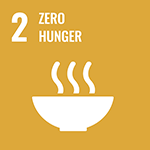Development of Aquaponics Combined with Open Culture Adapting to Arid Regions for Sustainable Food Production
Principal Investigator
-


Prof.
Faculty of Agriculture, Tottori University
YAMADA Satoshi


Dr.
Institutional Management Director, Northwestern Center of Biological Research (CIBNOR)
Ilie Sava Racotta Dimitrov
ODA Recipient Country
United Mexican States
Research Institutions in Japan
Tottori University / Tokyo University of Marine Science and Technology
Research Institutions in Counterpart Country
Northwestern Center of Biological Research (CIBNOR)
Adoption fiscal year
FY 2014
Research Period
5 Years
Overview of the Research Project
Solving water issues in arid regions using advanced aquaponics
Demand for food in Mexico is increasing due to the rapid growth in population. However, problems exist, such as depletion of groundwater for irrigated agriculture and soil degradation due to the use of highly saline groundwater. In order to achieve both effective water use and prevention of soil salinization, this project is working on an advanced form of aquaponics, a food production system that combines aquaculture and hydroponic cultivation of crops. Further development of aquaponics technology can potentially make maximum use of water by linking the system to open-field cultivation. Specifically, fish and shrimp are farmed using groundwater, and the drainage from that process is used for hydroponic cultivation of crops that have the property of absorbing salts. The water with reduced saline content resulting from hydroponic crop production can then be used for open-field cultivation.
Converting irrigated agriculture into highly productive systems around the world
If aquaponics suited to arid regions were adopted throughout the world, irrigated agriculture could be converted into a sustainable food production system. The deployment of these highly productive systems will contribute to securing safe water and food, countering threats to food security.
Photo gallery
Research Project Web site
Press Release
Links
Projects
Contact Us
Japan Science and Technology Agency (JST)
Department of International Affairs
SATREPS Group
TEL : +81-3-5214-8085
Related articles by Category
- Bioresources
Bioresources
 Republic of Uganda
Republic of Uganda
Development and Promotion of Sustainable Perennial Rice Production System Using Multiple Crop Harvesting Technologies
- Mexico
Disaster Prevention and Mitigation

 Republic of El Salvador
Republic of El Salvador
Protecting international port cities from compound disasters with dominostyle chains of destruction!
Compound Disaster Risk Reduction associated with Large Earthquakes and Tsunamis
- Latin America
Bioresources

 Republic of Peru
Republic of Peru
Stop the invasion and spread of banana wilt from threatening the banana industry!
Establishment of an Alert System for Fusarium oxysporum f. sp. cubense, the Banana and Plantain Wilt Pathogen, and Mitigation Strategy of the Disease
- SDGs : Goal.2
Bioresources
 Solomon Islands
Solomon Islands
Implementation of a Comprehensive Sweet Potato Seedling Management System for National Food Security


















